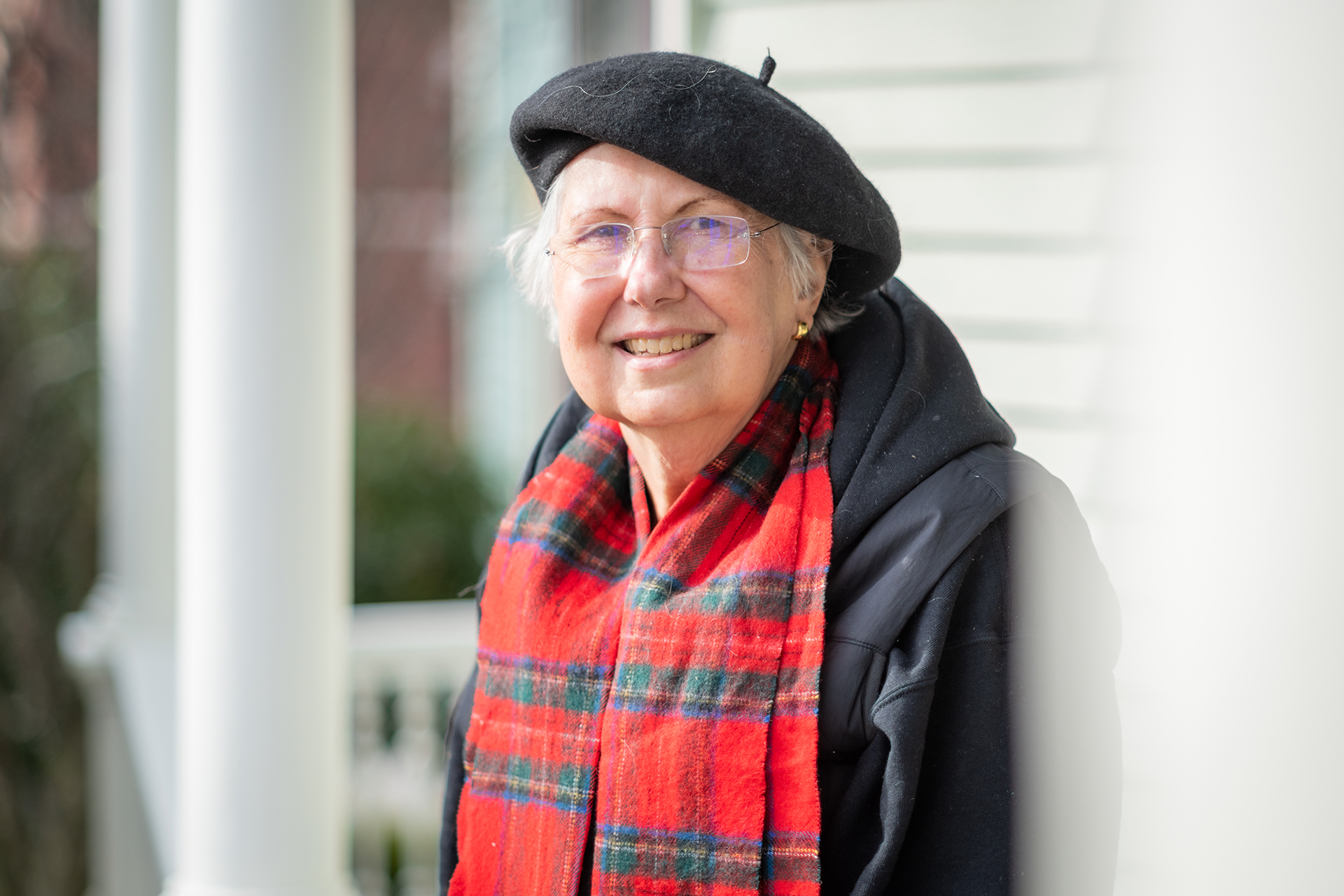
Editor’s note: Dianne Dyslin passed away on Feb. 20, 2024.
Dianne Dyslin has always approached life at full throttle.
She likes to travel, so she’s been to 30 countries and 45 states.
Her passion for learning led her to earn three master’s degrees.
When she lost her job as director of donor relations as part of widespread layoffs at Yeshiva University — whose finances were hit hard in the Bernie Madoff Ponzi scheme — she secured a position in 2009 at Clark, where she works as associate director of stewardship in the office of University Advancement.
But Dyslin’s most formidable challenge presented itself in 2016 when a routine mammogram revealed a suspicious mass. Further testing confirmed metastatic breast cancer that likely had been growing for years and had advanced to her lower spine. Doctors gave her a prognosis of two to three years. That was six years ago.
And counting.
Dyslin underwent a mastectomy and has endured multiple rounds of chemotherapy, as well as radiation treatments to her right jaw, where the cancer spread. The disease is in her bones now, but she insists there is no pain.
She has responded to her situation in the only fashion that makes sense to her: by continuing to travel and learn, and finding purpose in her work for Clark University.
When a donor makes a gift to Clark for a directed use, it’s Dyslin’s job to share with them how their gift is making an impact. She may profile a student who is receiving a scholarship that has put a Clark education within their reach, highlight the distinctive research of a faculty member who holds an endowed chair, or report on a donor-supported lecture.
She enjoys sharing these examples of how donors’ gifts are making a tangible difference, taking particular delight in showcasing student accomplishments.
“We want our donors to know how much they are appreciated,” she says, “and they want to know that their gift is being used wisely. If we can show them that it is, they may be inclined to give again.”
Dyslin arrived at Clark with an ALM (Master of Liberal Arts) in psychology from Harvard Extension and a master’s in organizational psychology from Teachers College, Columbia University (she earned her bachelor’s in comparative religion and psychology from Boston University). She has since earned her master’s in professional communication at Clark and studied in the master of public administration program. For good measure, she’s also taken 10 undergraduate courses at Clark, most of them in criminal justice.
“I just love learning. That’s why working in higher ed has been the perfect fit for me,” she says.
Her international travel destinations are a source of pride — Mongolia, Australia, and United Arab Emirates are some of the places she’s been. On her most recent trip, last spring, she kept it closer to home, visiting Frank Lloyd Wright’s Fallingwater house in Pennsylvania, Harpers Ferry, and Shenandoah National Park, among other destinations. She suspects she may have taken her last vacation, in large part because she relies on the nutritional supplement Ensure, which can be hard to find on the road (“They don’t sell it in gas stations and convenience stores,” she notes.)
While the medicines do fatigue her, the only concession Dyslin makes is allowing herself a lunchtime nap in her car to recharge herself for the second half of her day and taking the rare (very rare) day off to rest. She keeps a full schedule, and is glad to be working on campus rather than remotely, as she did during the COVID lockdown. While employees are eligible to work three days in the office and two days from home, she chooses to come to Clark every day.
“For me, it’s so much better to be back in person and connected to campus,” she says. “People have left it up to me about how I prefer to work, but I find it’s more productive to be in the office.”
Asked if she’d ever considered retirement, Dyslin, 68, laughs. “No,” she says. “I feel more productive when I’m working. “I’m actually grateful for work, and my supervisor, George Bacher, has made it possible for me to get to all my appointments and treatments.”
Those treatments continued with a new regimen of chemotherapy infusions that began in mid-December, a week after this interview took place. Dyslin was typically nonchalant about how she would approach chemo. “I’ll drive to UMass Medical Center, get the treatment, and drive back to work.” Asked if she had any help managing the logistics, she was blunt: “I don’t need any.” She said this with a smile.
Then she added, “I’m going to keep going until I can’t.”

